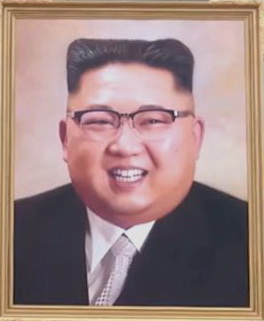US relations with North Korea strained
US and foreign sources close to the North Korean talks paint a picture that’s starkly different from the image President Donald Trump sought to convey Wednesday, when he told reporters the administration is “very happy with how it’s going with North Korea. We think it’s going fine.”
South Korean Foreign Minister Kang Kyung-wha told lawmakers in Seoul that she was told the North Koreans asked the US to postpone the talks, citing their busy schedules. A senior US official told CNN the North Korean delegation did not offer a clear explanation. Another source familiar with the US-North Korea talks and familiar with North Korean thinking said Pyongyang canceled because it came to the conclusion that it wasn’t going to get anywhere with working level talks.
North Korea’s state media outlet KCNA said November 2: “We gave all things possible to the US, things it hardly deserves, by taking proactive and good-will measures, what remains to be done is the US corresponding reply. Unless there is any reply, the DPRK will not move even 1 mm, how costly it may be.”
US military officials, foreign diplomats and sources familiar with developments say the two sides are locked in a standoff over who will make concessions first, that North Korea is “really angry” about the US refusal to offer sanctions relief and that personal friction between US and North Korean negotiators may be slowing progress.
A former CIA deputy division chief for Korea, Bruce Klingner, now a senior fellow at the Heritage Foundation, pointed to North Korea’s recent threat to restart “building up nuclear forces” if the US didn’t ease sanctions, the fact that Pyongyang has yet to meet Pompeo’s Special Representative for North Korea, Stephen Biegun, and that the two countries still haven’t agreed on the definition of basic terms such as “denuclearlization” — five months after Trump’s historic summit with Kim. “Clearly the two sides remain very far apart,” Klingner said. “It doesn’t bode well for the negotiations, which were already not proceeding well.”
Pyongyang’s threats over the weekend to restart its nuclear program have also increased tensions, according to the sources familiar with the exchanges between the US and North Korea. They also say that personal friction between negotiators has been a problem. The US side sees the North Korean general charged with leading negotiations, hardliner Kim Yong Chol, as “difficult and old-fashioned” in negotiations and would prefer to work with someone else.
President Trump has said he would meet with Kim Jong-un “sometime next year, sometime early next year”.
[CNN]

 The huge new picture was on display during a visit by Cuba’s president. The new larger-than-life artwork shows him smiling, looking slightly to his left, while wearing a Western style suit and tie.
The huge new picture was on display during a visit by Cuba’s president. The new larger-than-life artwork shows him smiling, looking slightly to his left, while wearing a Western style suit and tie.